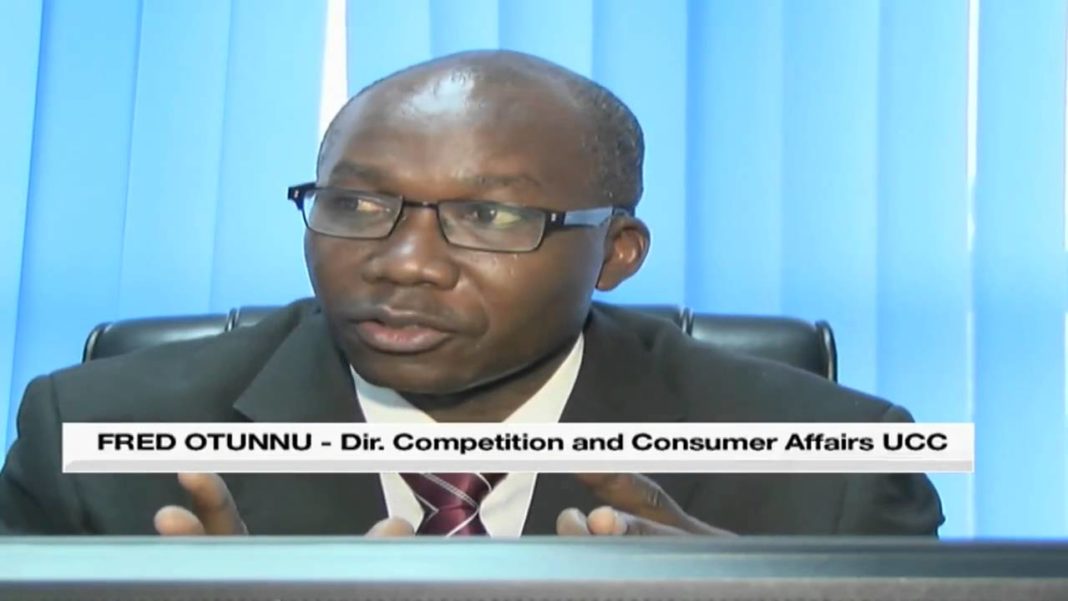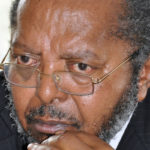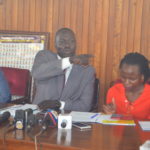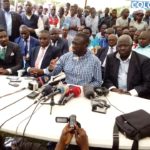The Uganda Communication Commission has refuted allegations that its boss Eng. Godfrey Mutabazi blew over Shs10 on travelling to different destinations alone.
Instead the communication regulator says the said money was spent by Mutabazi alone as Members of Parliament on ICT committee, sector line Ministers and Uganda’s diplomats in the respective countries are used the money for the air tickets, accommodation among other things.
“UCC staff, ministers responsible for communications, Members of Parliament on the Sessional Committee on ICT – just to mention a few – travelled on the UCC ticket to participate at events abroad during 2011-15. This was in line with UCC’s mandate of representing Uganda at and/or coordinating the country’s participation in regional and international fora and organisations as spelt out under Section 5 (1) (q) of the Act” wrote, Mr Fred Otunnu, UCC Director for Corporate Affairs
Adding “The delegation to such meetings is usually led by the Minister responsible for ICT. The delegation often includes officials from UCC, Uganda’s diplomatic missions, Ministry of ICT, and MPs on the Sessional Committee on ICT where applicable.
Below is the full statement
UCC a Global ICT Player
Introduction
The Uganda Communications Commission (UCC) is a statutory body mandated to regulate Uganda’s communications sector as established by the Uganda Communications Act 2013. The sector comprises telecommunications; electronic media (broadcasting), social media; postal and courier services; radio communications; and data communication and infrastructure.
UCC would like to draw the attention of Ugandans to the article entitled “UCC bosses blow over UGX10b on foreign trips and legal fees” that appeared Sunday Vision of August 14, 2016 (p.5) – an article that depicts UCC as a corrupt and spendthrift organisation. I wish to provide the facts as follows;
UCC staff, ministers responsible for communications, Members of Parliament on the Sessional Committee on ICT – just to mention a few – travelled on the UCC ticket to participate at events abroad during 2011-15. This was in line with UCC’s mandate of representing Uganda at and/or coordinating the country’s participation in regional and international fora and organisations as spelt out under Section 5 (1) (q) of the Act.
UCC represents Uganda at such international fora as the Africa Telecommunications Union (an inter-governmental organisation dedicated to fostering ICT infrastructure development in Africa), Commonwealth Telecommunications Union (a Commonwealth membership organisation in the field of information and communication technology), and East Africa Communications Organisation (an East African regional organisation that brings together national ICT regulators, operators, services providers in the telecommunication, broadcasting and postal sub-sectors).
Others include the GSM Association (an association that represents the interests of mobile operators worldwide), International Telecommunications Service Organisation (an intergovernmental organisation aimed to provide public telecommunications services, including voice, data and video, on a global and non-discriminatory basis), International Telecommunications Union (the United Nations specialised agency for ICT), Pan Africa Postal Union (a specialised agency of the African Union aimed to improve co-operation on postal matters in Africa) and Universal Postal Union (the primary global forum for cooperation between postal sector players).
Type of meetings
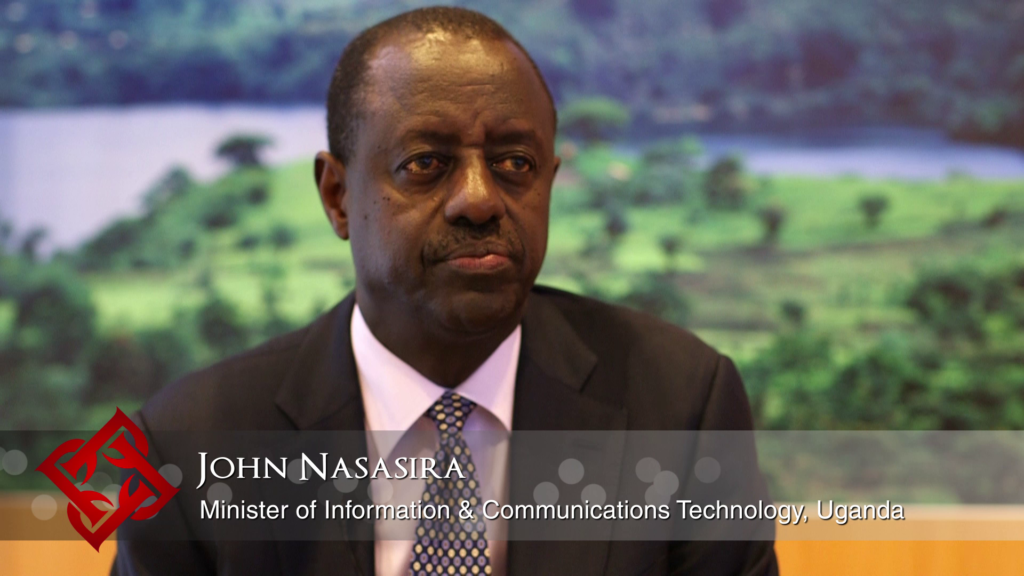
In these bodies, UCC participates in three categories/types of meetings:
Plenipotentiary Conferences. This is the top policy making organ of the international organizations. The delegation to such meetings is usually led by the Minister responsible for ICT. The delegation often includes officials from UCC, Uganda’s diplomatic missions, Ministry of ICT, and MPs on the Sessional Committee on ICT where applicable.
The Commission participates in Study or Working Group meetings. These are highly specialised meetings tackling technological issues. These are attended by technocrats from UCC. Worth mentioning are Study Group 11 and Study Group 13 of which UCC has been Vice Chair persons.
Study Group 11 is responsible for producing international standards (ITU-T Recommendations) that define how telephone calls and other calls (such as data calls) are handled in the network; and developing signalling requirements and protocols for Software-defined Networking (SDN). This Group leads ITU’s work on conformance and interoperability (C&I) testing, as well as developing test specifications focusing on global interoperability testing parameters, services, and quality of service (QoS) and testing parameters.
On the other hand, Study Group 13 is responsible for Future Networks (FNs) – networks of the future beyond NGN (2020). It is also concerned with the evolution of NGNs, while focusing on future networks and network aspects of mobile telecommunications. These include cloud computing, mobile and next-generation networks, future networks studies, network aspects of the Internet of Things (IoT), IMT-2000 and IMT-Advanced (ITU-R standards commonly referred to as 3G and 4G, respectively.
The third group of international engagements that UCC attends is Conventions, and exhibitions. These are usually headed by a government official at ministerial level participating on High level panel sessions on topical issues. For exhibitions, UCC has taken winners of innovation awards to showcase Ugandan technology, innovations and service provision up to the grassroots.
Therefore, UCC and/or Ugandan participants are required to attend these meetings which consider issues pertinent to the communications and technological industry. Therefore, many of the travels queried in the Sunday Vision article and/or their sources were related to these meetings and events.
Examples of meetings attended

Between 2011-2015, UCC (or a Ugandan delegation coordinated by UCC) has attended a number of meetings and events such as the CTO Council in London (2011), which UCC had chaired for two years (2009-2010); the 31st PAPU Administration Council held in Addis Ababa, Ethiopia, at which Uganda was elected to the PAPU Council of Administration; 19th ITU Plenipotentiary Conference held in Busan, South Korea, at which Uganda was elected to the ITU Council for Africa (Region D) for the period 2014-18; 4th ATU Plenipotentiary Conference held in Harare, Zimbabwe from July 3-11, 2014, where Uganda was re-elected to ATU Administration Council (2014-18); and the World Radiocommunication Conference 2015 (Geneva, Switzerland).
It should be noted that UCC votes and is voted for various posts. Since this is at regional, continental and global levels, the Government is heavily involved including but not limited for soliciting and lobbying member states at diplomatic lobby. Accordingly, the Ministry of Foreign Affairs and Uganda’s diplomatic missions abroad are usually involved.
Events hosted events
In return, either as chairperson or out of goodwill, Uganda occasionally hosts international events. In June 2015, UCC hosted the 21st EACO Congress and Exhibition at the Sheraton Hotel from June 22-26, 2016. UCC was elected EACO chairperson; in 2013, UCC hosted a five-day regional digital migration workshop at Munyonyo under the theme: “Strategy for Broadband Access for All in East Africa.”
Other important events hosted include the 7th Annual eGov Africa 2013 under the theme: “eGovernment Policies, Practices and Innovation: The Road Ahead” (March 25-27, 2016); ITU Standardisation Meetings (Study Group 11 and 13) -November 4-15, 2013; and the 9th eLearning Africa Conference 2014 under the theme: “Opening Frontiers to the Future” (Munyonyo from May 28-30, 2014.
Conclusion
While time and space do not allow us to exhaust all the issues raised in the above article, it is evident the article contained a number of inaccuracies and distortions that inadvertently depicted UCC in an unfavourable image. Therefore, through this article UCC has put the issues raised into clear perspective.
UCC advocates open dialogue and is open to constructive criticism, but such communication ought to be from an informed point of view, fair and balanced. We would like to assure our communications sector is healthy, vibrant and on the right course to prosperity.
Fred Otunnu
DIRECTOR FOR CORPORATE AFFAIRS




